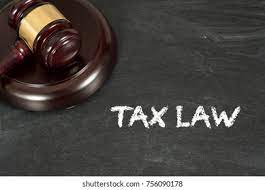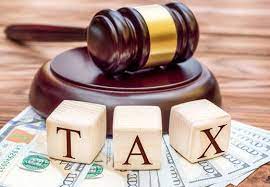When tax related cases are heard in New Jersey, they are handled by tax law attorneys. Tax evasion and tax fraud are serious offenses that come with severe penalties including jail time if the case is tried in Federal Court or the Tax Court of New Jersey. In the Tax Court of New Jersey, tax law attorneys assist tax payers or taxpayers in pursuing state tax debt relief, tax relief for employees and tax fraud. Some of the tax related cases in New Jersey involve the audit of a New Jersey tax preparation office. Other tax related cases involve the negotiation of tax debts with the IRS.
When tax fraud occurs in New Jersey, tax law attorneys negotiate tax debt resolution with the IRS before any tax debt relief or tax recovery takes place. Negotiating tax debts with the IRS is not an easy task. The tax attorneys and accountants hired by tax law firm have to face tough questions from the IRS representatives.
Tax evasion is a serious tax related cases in New Jersey. When tax fraud occurs, the taxpayer or the tax payer might face criminal prosecution. It may even lead to jail time. Serious tax crimes like tax evasion can be solved only by the services of tax lawyers.
There are tax frauds that occur only on a one-time basis. Some tax fraud occurs due to the filing of tax returns on an irregular basis, which makes it difficult for the IRS to gather sufficient evidence to pursue tax fraud charges. One such example is the situation where a taxpayer does not file tax returns for two consecutive years. In such a case, the tax lawyer representing the client will have to convince the IRS that his client did not incur any tax debt as the result of irregular filing. A tax lawyer also helps the client negotiate tax debts with the IRS and with tax creditors so as to minimize tax liability and increase savings.
Tax attorneys can be called upon for help when tax related crimes are perpetrated. They represent taxpayers on tax fraud and tax evasion cases. They prepare all necessary paperwork and conduct interviews with the client and the  authorities. After preparing the necessary papers, they will depose before tax judges. Tax attorneys will argue the taxpayer’s case before the tax judges. They will also argue and fight cases before tax fraud magistrates. Click here to learn more about tax fraud and its consequences.
authorities. After preparing the necessary papers, they will depose before tax judges. Tax attorneys will argue the taxpayer’s case before the tax judges. They will also argue and fight cases before tax fraud magistrates. Click here to learn more about tax fraud and its consequences.
Tax attorneys work closely with tax judges and prosecutors to recommend effective tax resolution. They fight cases before tax judges who will determine penalties and fines for tax fraud and evasion. Tax attorneys are experts at handling complicated tax related cases. They are well versed with all tax codes and laws. To obtain their services, the tax lawyer should be highly qualified and trustworthy.
 There are two major types of tax evasions: criminal acts and innocent statements. Criminal tax evasion occurs when a taxpayer makes a false statement on tax forms, or attempts to misrepresent information about income and assets, said a
There are two major types of tax evasions: criminal acts and innocent statements. Criminal tax evasion occurs when a taxpayer makes a false statement on tax forms, or attempts to misrepresent information about income and assets, said a